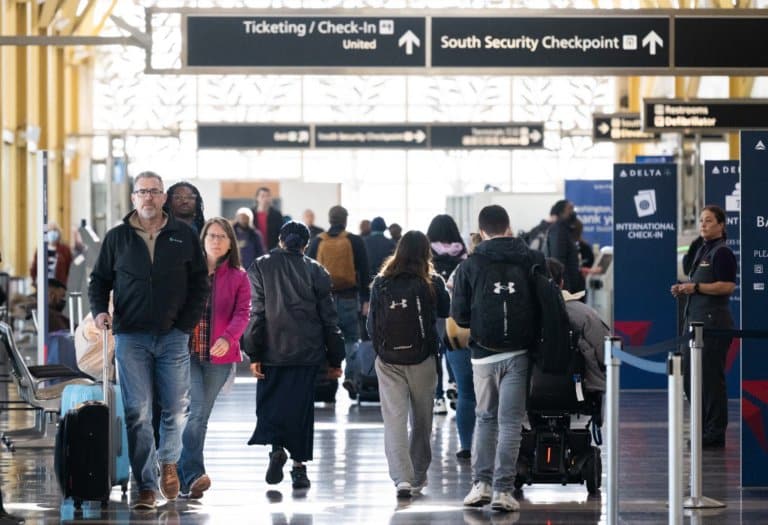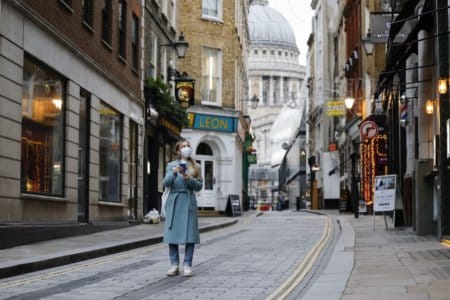
You’re 30,000 feet in the sky. A baby is fussing three rows ahead. The sensation of rubbing elbows with complete strangers in a narrow space is just not fun.
Nothing feels less natural than this — but the thought of seeing the Eiffel Tower, gliding through Venice on a gondola, or making a wish in the Trevi Fountain motivates you to push through.
Still, you might wonder how to survive a long flight if you have social anxiety. Before we move on to the solutions, let’s think about what fuels your anxiety or fears of flying — especially if you’re feeling it more than usual.
Why do you feel anxious?
Our fears come from an irrational state of mind. Dr. Ashley Hampton, a licensed psychologist and media strategist, recommends that you reflect on your bad travel experiences.
“Researching what it is like to go to the airport and go through security is important,” she shares. “I have had clients tell me they no longer like to travel because they were pickpocketed and now feel like they’re unsafe.”
Statistics also show that it’s normal to experience aviophobia (a fear of flying). About 6.5% of American have it and approximately 25% have some form of flight-related anxiety, according to the National Institute of Mental Health.
Ora Nadrich, a certified mindfulness meditation instructor and life coach, adds: “Some of the primary reasons some people are afraid to fly are a fear of crashing, a fear of being out of control, a fear of the unknown, a fear of heights, having lost a loved one in a plane crash and feeling claustrophobic.”

Fidget spinners are a great way to help you curb your social anxiety while travelling. Source: Drew Angerer/Getty Images North America/Getty Images/AFP
How to survive a long flight if you have social anxiety: 4 tips and tricks
Work with your fears, not against it
If you’re worried about travelling alone, ask a friend to follow you. Who knows? You might even enjoy your new company.
“Share your concerns, your coping strategies, and how they can support you if you become anxious,” says George Livengood, assistant national director of operations at Discovery Mood & Anxiety Programme.
“If you are travelling by yourself, let a friend or family member know that you might reach out to them if in distress, and coach them on how they can provide support over the phone.”
Distract yourself
Social anxiety can consume your thoughts and prevent you from thinking about anything else. Distracting yourself, especially with repetitive things, relaxes your mind and gives you time to reassure yourself.
One traveller shares: “Whenever I’m feeling anxious while travelling, I sing to myself in my head, rub a coin or jingle my keys in a repetitive way. On [my] time off, I knit, do puzzles, colour, recite poetry in my head, or read about something light and completely remove [myself] from travelling.”
Consider fidget spinners or stress balls too. They help keep your hands busy — a great way to distract yourself from feeling anxious.

Do a few jumping jacks in a private corner a few minutes before boarding. Source: Wakil Kohsar/AFP
Relax your body
Dr. Jamie Long, a licensed clinical psychologist, shares seven steps to mitigate anxiety by tending to your body:
- Drink loads of water and nourish your body the night before you travel. Anxiety reduces your appetite, so the brain and body need fuel to rebalance your nervous system.
- Do a 10-minute guided meditation (preferably one intended for social anxiety) in the boarding area. Headspace is a great app to download for guided meditations.
- Do a few jumping jacks in a private corner a few minutes before boarding. A brief, intense workout can help calm a body revved up by emotion.
- Practise a four-count paced breathing as you walk towards the plane’s door. Breathe in for four seconds, hold for four seconds, exhale for four seconds, and repeat.
- Distract yourself when you’re in your seat. Long suggest you bring something to read, watch a movie or even say the alphabet backwards.
- Practise compassionate and encouraging self-talk. Tell yourself, “I can do this. I am safe.”
Rest a day after you’ve travelled
What better to “recharge your batteries” than having a day off to unpack and de-stress in the comfort of your own home? After all, navigating new environments and being out of your comfort zone can take a heavy toll, especially if you have social anxiety.
While you’re at home, reflect on the new experience you’ve just created. Visualising these positive thoughts not only prevents you from overthinking, it also helps to reduce stress and anxiety.










